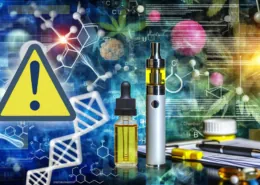Japan Updates World’s Strictest THC Limits in CBD Products
The Japanese government has released long-awaited guidance on THC limits for CBD products, enabling brands hoping to launch into the market to begin devising their strategies. However, despite minor changes to the initially proposed limits, they still represent the strictest in the world, raising concerns about the impact on the emerging cannabis and CBD industries in Japan.
Minor Adjustments to Draft Legislation
In May 2024, Japan officially launched a public comment period for draft legislation meant to regulate the country’s cannabis and CBD industries. Following the public feedback, the Ministry of Health, Labour and Welfare (MHLW) made some minor adjustments to the proposed THC limits:
- Oil/Powder: 10mg/kg (0.001% or 10ppm)
- Aqueous solutions: 0.10mg/kg (0.00001% or 0.1ppm)
- Others (e.g., food): 1mg/kg (0.0001% or 1ppm)
Dr Yuji Masataka, MD, Japan’s first specialist in medical cannabis, told Business of Cannabis that the threshold for raw materials, including isolate powder, has been raised from the initially proposed 1ppm to 10ppm. While this represents a tenfold increase and a step in the right direction, it remains the strictest limit in the world and does little to alleviate industry concerns.
Potential Impact on Industry
The strict THC limits could significantly impact the industry as it rolls out in Japan. Concerns include:
- Dominance of isolate-based products and loss of the entourage effect
- High CBD prices due to limited product diversity
- Difficulties in testing for such trace amounts of THC without investing in expensive equipment
- Increased testing costs leading to higher product prices
- Struggle for broad-spectrum or vape products to comply with the new regulations
- Reduction in the efficacy of CBD products and impact on potential market growth
- Proliferation of synthetic cannabinoid products that technically comply with the regulations but still have intoxicating properties
- Potential for fraudulent component analysis certificates and ineffective government spot checks
Patients’ Concerns and MHLW’s Response
Patients using CBD products have launched a petition calling for a review of the new proposals, which has received over 35,000 signatures. In response to these concerns, the MHLW states that they plan to launch a clinical study to ensure that patients with intractable epilepsy can continue to use products containing cannabis-derived ingredients.
Despite the adjustments made to the draft legislation, the strict THC limits in Japan’s CBD products remain a significant concern for the industry and patients alike. As the country navigates the emerging cannabis and CBD markets, it remains to be seen how these regulations will impact the growth and accessibility of these products.
- Bestselling Vapes in UK After Disposable Ban: What to Stock 2025 - August 8, 2025
- Argentina Debates Stricter Vape Laws Amid Prohibition Failures - August 8, 2025
- Nigeria Advocacy Group Urged to Hike Tobacco & Vape Tax by 100% - August 8, 2025








